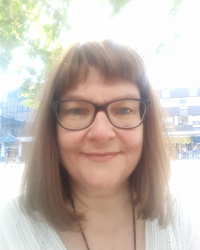OCD and trauma
In my work with clients with OCD, it often transpires that they have experienced some form of trauma in their early years. This isn't always the case, but it's very common. About 80% of OCD sufferers have experienced traumatic circumstances growing up. This can be physical, sexual or emotional abuse or emotionally neglectful situations which are also traumatic for us to live through.

My experience is that sometimes clients are unaware that they have lived through trauma growing up.
If our situation was not obviously abusive, to the point where there could be little doubt that there was a lot of suffering, we may consider that our life has been pretty OK. We may have had all of our physical needs taken care of such as enough food, a nice house, good clothes, and no shortage of material things. Sometimes we may even have experienced a generally good relationship with our parents or caregivers. Perhaps we consider, therefore, that our childhood was not bad at all.
However, even in these situations, it's possible for people to experience trauma through emotional neglect. It's very common for people to have felt no emotional connection with their parents growing up. This can take the shape of emotions not being expressed within the family, or certain emotions being permitted while others were not. It can also manifest in us feeling we were not allowed to talk about our emotions.
Sometimes conversations around emotional topics are actively discouraged within families or even ridiculed. Emotional expression can sometimes similarly be made fun of within the family. We may have experienced our feelings being minimised or completely dismissed in different ways. This could have meant that we had nowhere to take them and that we were left to process them within ourselves.
All of these situations have a tremendous impact on our lives, both at that time and into the future. They result in us growing up without a strong sense of self. It's hard when we haven't been guided in an emotional sense to understand who we are as people and what our place in the world is. I regularly see evidence of this in my client work.
When we develop OCD, this is a way for us to try to gain a sense of control in an uncertain world. What I often see is that clients feel unsure whether they are doing the right things, coming across to others in a good way, if they have harmed or offended anyone unintentionally, etc. They sometimes also struggle with decision-making. These are extremely common feelings for OCD sufferers to have and they are all symptomatic of some form of trauma. As OCD sufferers, we are often inclined to place a lot of importance on the views of other people. We feel a need for validation from the external world because we didn't receive this growing up from those closest to us.
When we are validated in our early days by people who want to see and hear our emotions, listen to our stories and show us that we are special human beings, we develop a strong sense of self. This means we don't have to suffer with high anxiety or feel the need to constantly seek validation elsewhere in our life.
It's deeply unfair that any of us should have to endure this situation as children and adolescents or to live through any traumatic circumstances. However, there are ways in which we can help ourselves to process what has happened to us and to find good ways to move forward with our lives.
How can counselling help?
Sometimes this journey begins with long-term trauma counselling or short-term treatment for trauma. Other times, people choose to work on the surface symptoms, such as OCD, in order to learn how to manage these better. This, in turn, can lead us to develop a different perspective of ourselves and the world, whereby we no longer feel the need to constantly be in control. Ultimately, this can also help free us to engage better with counselling, in order to look more deeply into our lives.
For help with managing OCD, please contact an OCD therapist experienced in working with exposure and response prevention. For information and support, please consider reaching out to the charity OCD Action.

Find a therapist dealing with Trauma
All therapists are verified professionals






